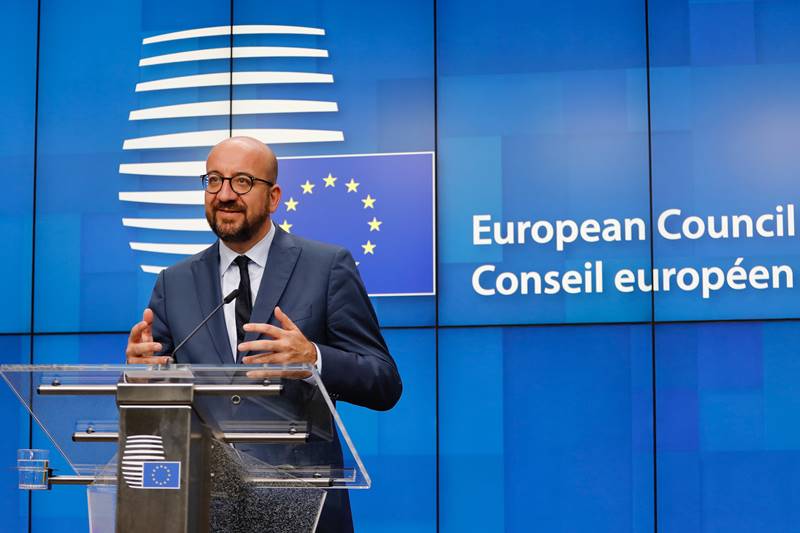After three days and nights of discussions, the European Council agreed on Tuesday evening on the future leaders of the EU institutions. The decisions were taken just in time before the first plenary meeting of the European Parliament on Wednesday (3 July) when the Parliament will vote on the election of its president.
Whether the Council decisions will facilitate the election of the Parliament president, or rather two presidents for each half of the mandate period, is doubtful. The Council could have taken decisions by qualified majority voting to select the best man or woman to the posts but reportedly voted for compromise candidates in the face of opposition from Member States.
Unable to select any of the lead candidates to the post as Commission president, the Council decided to propose German defence minister Ursula von der Leyden, a member of the centre-right block (EPP) that had claimed the post because it received most votes in the European elections. Von der Leyden, who had not been a lead candidate, will need to be elected by a majority in the Parliament.
The favourite to the post as Commission president, current Commission vice-president Frans Timmermans from the centre-left block (S&D), would probably have mastered a majority in the Parliament but faced opposition from Poland and Hungary for his criticism of the erosion of the independence of the judiciary in those countries.
According to outgoing Council president Donald Tusk, the Council took note of Ursula von der Leyen's intentions to nominate Frans Timmermans and Margrethe Vestager, the current Danish commissioner for competition, as the highest-ranking Vice-Presidents of the Commission.
The Council elected Belgian Prime-Minister Charles Michel as President of the European Council, the second Belgian to hold this post. “The EU is facing challenges that also can be opportunities,” he said at the press conference yesterday evening and mentioned Brexit, climate change and the economy. “I’ll work to protect the diversity, unity and solidarity of the EU.”
“We need a solid basis of cooperation between all EU institutions,” he added, “and to be able to make compromises.”
Charles Michel, with his experience as Belgian Prime Minister, will be ideal for finding consensus and building unity among Member States, according to outgoing Council president Donald Tusk.
The Council also considered Josep Borrell Fontelles, Spanish minister of foreign affairs since last year and a former president of the European Parliament, to be the appropriate candidate for High Representative of the Union for Foreign Affairs and Security Policy, a post currently held by Federica Mogherini. He will have to deal with a number of unsolved international conflicts.
Christine Lagarde, a French politician currently acting as chairwoman of the International Monetary Fund, was considered to be the appropriate candidate for President of the European Central Bank.
Donald Tusk said that the Council nominations reflected a perfect gender balance. “I am really happy about it. After all Europe is a woman.” However, the new Commission president would need to ensure an appropriate geographical balance in the team of Vice-Presidents.
The Brussels Times

